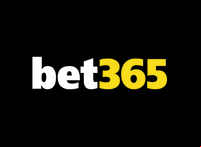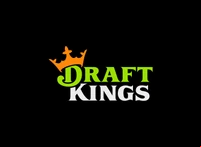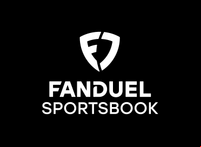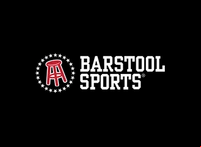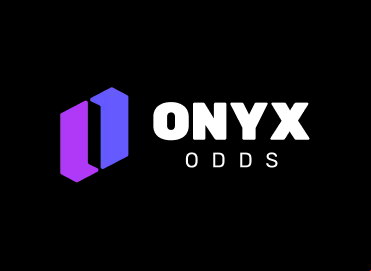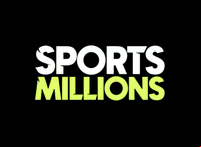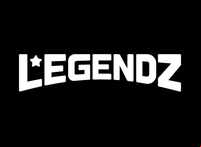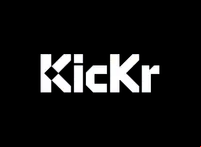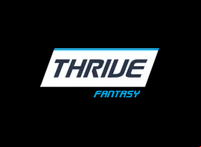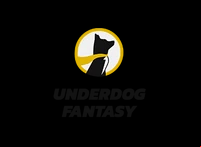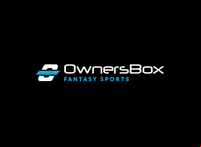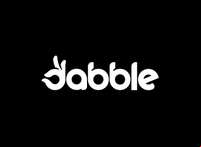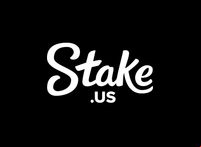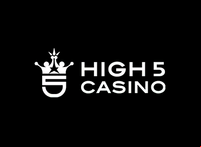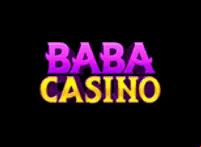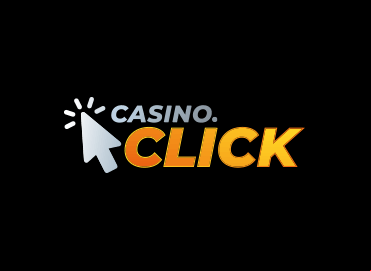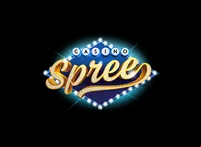What is overvalue? A question often asked by those new to EV betting. Well, overvalue occurs when a sportsbook is offering odds that exceed the implied probability of an outcome, exactly the type of bets you need to place. 1v4s4s
Finding overvalue bets gives you an edge over the sportsbooks, but first you need to calculate each set of odds to find it. To do this you use implied probability and real probability to calculate the overvalue before placing any bets. In this guide, we will highlight the full process to help you on your way.
Pros and Cons of overvalue 6f6b3h
Evaluating Overvalue or Undervalue Odds
- Simple formula to show overvalue or undervalue odds
- A useful tool to help calculate EV
- Takes personal opinion into
- Often corrected very quickly by the sportsbook
Getting Started: What is Overvalue? 4l641m
A true understanding of EV betting is a surefire way to create the most profitable betting strategies in May. EV betting can be used as a standalone strategy, or you can use it alongside other betting strategies, including bankroll management and hedging. Of course, you can also use it when determining overvalue.
When we consider EV betting, we are constantly on the lookout for discrepancies between the base odds offered by sportsbooks. We will then use a tried and tested formula:
- (winning implied probability % * profit if bet won) – (Losing implied probability % * stake)
Calculating in this way allows us to confirm the expected value (EV) of the best odds available.
If the result is a positive EV, we would presume that consistently placing bets at those odds over a prolonged period of time will result in a number of winning bets. Conversely, a negative EV would be more likely to result in a consistent stream of losses. So, where does overvalue come into play?
The overvalue of a certain set of odds refers to the difference between the implied probability and the “true” probability of a wager winning. The higher the percentage, the higher a set of odds have been overvalued. As you will soon see, this can have quite an impact on the expected value, showcasing odds that actually have less overall value to you.
This might occur when a certain buzz surrounds a specific team or player, and an influx of wagers has been placed on a specific sports betting market. For example, you may find that McCaffrey coming back from injury has boosted the 49er's odds of winning the Super Bowl. However, based on the 49er’s current form, this doesn’t look too likely.
Our highly esteemed bookies 4u716g

1.
Play Free for Your Share of Millions in Prizes with 1st Deposit + free $3 ticket
Play now
18+ in most eligible states, but age varies by jurisdiction. Eligibility restrictions apply.

2.
Up to $1,000 Bonus Cash when you make your 1st deposit

3.
100% First Deposit Match up to $100 in Promo Funds

4.

5.
How do you calculate Overvalue? 6e3tv
Before you can calculate overvalue, you need to understand how to calculate implied probability. You can use these formulas to get started.
- For positive odds: Probability = 100 / (odds + 100)
- For negative odds: Probability = -odds / (-odds + 100)
From there, you’ll need to consider the expected value or “true” probability of the outcome. You can either work this out for yourself or make use of the tools and expertise of the gurus over at PromoGuy+.
Once you have your true probability and implied probability, you’ll need to one away from the other to leave you with the overvalue percentage. You can then use this value to determine whether a specific betting opportunity is worthwhile.
- Overvalue % = (implied probability) - (true probability)
Now you can view the size of the discrepancy directly, and also make use of the EV betting formula to confirm whether it’s a negative or a positive EV betting opportunity.
What does overvalue look like in the real world? 4k695h
In the sports betting world, overvalue relies on you finding odds that the sportsbooks have effectively mispriced on a certain market. You then need to calculate the implied and real probability before determining the overvalue percentage.
Although we’ve discussed the process of calculating overvalue already in this guide, this table offers you an exaggerated real-world example.
| Sportsbook |
Betting market |
Odds |
Implied probability |
True probability |
Overvalue? |
| Bet365 |
Joe Mixon anytime TD scorer |
+120 |
45.45% |
40% |
5.45% |
| Caesars |
Joe Mixon anytime TD scorer |
+120 |
45.45% |
40% |
5.45% |
| BetMGM |
Joe Mixon anytime TD scorer |
+180 |
35.71% |
40% |
-4.29% |
| Betrivers |
Joe Mixon anytime TD scorer |
+120 |
45.45% |
40% |
5.45% |
As you can see, Bet365, Caesars, and Betrivers have odds set at +120. This leads to an overvalue of 5.45%. As this is considered overvalued, it would not be a good idea to take their odds, when compared to the +180 odds set by BetMGM. In this instance, the odds are considered undervalued by -4.29%.
Comparison: What is considered good and bad overvalue? 63496a
Taking the above examples into , let us break down good and bad overvalue and EV betting principles. Just bear in mind that the usual formula for EV betting will be changed from implied probability to true probability to for the overvalued odds.
Good Value: A $100 bet at BetMGM with odds at +180 1w3g32
Overvalue % = (implied probability) - (true probability)
Overvalue % = (35.71%) - (40%) = -4.29%
True probability EV betting = (Probability % * profit if bet won) – (Losing probability % * stake)
True probability EV betting = (40% * 180) – (60% * 100) = +12
This means that you would expect to win $12.
Bad Value: A $100 bet at Betrivers with odds at +120 5w6y2i
Overvalue % = (implied probability) - (true probability)
Overvalue % = (45%) - (40%) = 5%
True probability EV betting = (Probability % * profit if bet won) – (Losing probability % * stake)
True probability EV betting = (40% * 120) – (60% * 100) = -12
This means that you could lose $12.
Overvalue checklist: Things to consider before placing your bets 6m703c
Obviously, you’ll need to be armed with the above formulas, an understanding of the sports you’re betting on, and potentially a little help from the PromoGuy+ team to get up and running. However, it also pays to have these tick boxes covered.
One of the easiest ways to help determine overvalue is by utilizing an odds comparison tool. We have all you need here at PromoGuy, offering an updated look at some of the best odds around. Once you’ve found some discrepancies, it could be worth cracking out the calculator to check out any possible signs of overvalue.
🌟 Reliable Reviews of Top Sportsbooks
After you’ve confirmed an EV betting opportunity, you’ll want to make sure that the odds come from a reputable online sportsbook. Fortunately, we’ve been busy working our way around the market, offering updated comparisons of the safest sports betting sites to use in May.
Although it won’t be the first thing to consider, bonuses should always be on your radar. When ing a new sportsbook, you’ll often be presented with a welcome bonus, and as an existing bettor you can often take advantage of promotions like odds boosts. Just make sure that the T&Cs applied work for you and that the markets you’re betting on are eligible.
👨🏫 Consider Help from the Experts
Overvalue and EV aren’t the easiest concepts to wrap your head around. So, although we have plenty of free +EV betting picks for today ready and waiting, you may want to level things up by having a chat with the team over at PromoGuy+.
As overvalue often comes about due to breaking news and subsequent market movement, you’ll want to stick with sports and betting markets that you are already familiar with. This is the best way for you to make sound judgments based on the true probability of an event outcome.
Hopefully, we have helped to break down a pretty complex topic into manageable chunks for you. Now, you can use your newfound knowledge to make the most of odds discrepancies when they come up. It’s also worth ing that overvalue predominantly occurs after breaking news or incidents occur, leading to an influx in wagers being placed on a specific betting market.
Such events cause market movement and can send the odds in a particular direction. But now you know how to find out the implied probability and compare it with the true probability to establish the overvalue percentage in each case. Couple this with the EV betting formula, and you’ll be able to make informed betting choices. Alternatively, you can always get in with the PromoGuy+ team to take all of the hard work out of it.
Claim the best betting bonuses of 2025 5t296d

1.
Play Free for Your Share of Millions in Prizes with 1st Deposit + free $3 ticket

2.
Up to $1,000 Bonus Cash when you make your 1st deposit

3.
100% First Deposit Match up to $100 in Promo Funds

4.
100% up to $500
Min. Deposit: $10

5.
What Is overvalue FAQ 1g4810
💰 Will you always be profitable when taking overvalue into ? 1q5u5p
There is good and bad overvalue. But by taking the time to make the correct calculations you can easily determine which is the case. And when you combine with EV betting principles, you’ll find that you are likely to profit in the long term using ‘good’ overvalued odds. Our guide covers this topic in detail, or you can head to PromoGuy+ for specific guidance.
🔍 Will you find overvalue on all betting markets? 3is6w
No. Overvalue predominantly occurs after breaking sports news is released. For instance, a last-minute injury could raise an opposition's odds. In turn, such events cause changes in betting patterns, and the sportsbook odds, that can be leveraged to your advantage.
💵 Is it possible to win money using overvalue? 11443m
As a principle, yes. However, you will want to to look out for ‘good’ overvalue betting opportunities. Over a prolonged period, those with positive expected value have the potential to increase your winnings.

![Bet365]()
![Betway]()
![Unibet]()
![Betfred]()
![Caesars]()
![BetMGM]()
![DraftKings]()
![FanDuel]()
![Borgata]()
![Sugarhouse]()
![Crab Sports]()
![Tipico]()
![Barstool]()
![Fanatics]()
![Sporttrade]()
![Bet365]()
![Betway]()
![Unibet]()
![Betfred]()
![Caesars]()
![BetMGM]()
![DraftKings]()
![FanDuel]()
![Borgata]()
![Sugarhouse]()
![Crab Sports]()
![Tipico]()
![Barstool]()
![Fanatics]()
![Sporttrade]()
![Fliff]()
![Onyx Odds]()
![Get Prophet X]()
![Novig]()
![SportsMillions]()
![Legendz Casino]()
![Kickr]()
![Sportzino]()
![Real Prize]()
![Stake.us]()
![McLuck]()
![Sidepot]()
![Jackpota]()
![CrownCoinsCasino]()
![High5Casino]()
![MegaBonanza]()
![Legendz Casino]()
![Baba Casino]()
![MyPrize US]()
![Wow Vegas]()
![Casino Click]()
![Spree]()
![The Money Factory]()
![Real Prize]()
![Stake.us]()
![McLuck]()
![Sidepot]()
![Jackpota]()
![CrownCoinsCasino]()
![High5Casino]()
![MegaBonanza]()
![Legendz Casino]()
![Baba Casino]()
![MyPrize US]()
![Wow Vegas]()
![Casino Click]()
![Spree]()
![The Money Factory]()
![PlayStar]()
![Wheel of Fortune Casino]()
![BetMGM Casino]()
![DraftKings Casino]()
![Caesars]()
![PartyCasino]()
![Bet365]()
![Borgata]()
![888]()
![Golden Nugget]()
![Pokerstars Casino]()
![Ocean Online Casino]()
![Resorts Casino]()
![Mohegan Sun]()
![Hard Rock Bet]()
![PlayStar]()
![Wheel of Fortune Casino]()
![BetMGM Casino]()
![DraftKings Casino]()
![Caesars]()
![PartyCasino]()
![Bet365]()
![Borgata]()
![888]()
![Golden Nugget]()
![Pokerstars Casino]()
![Ocean Online Casino]()
![Resorts Casino]()
![Mohegan Sun]()
![Hard Rock Bet]()
